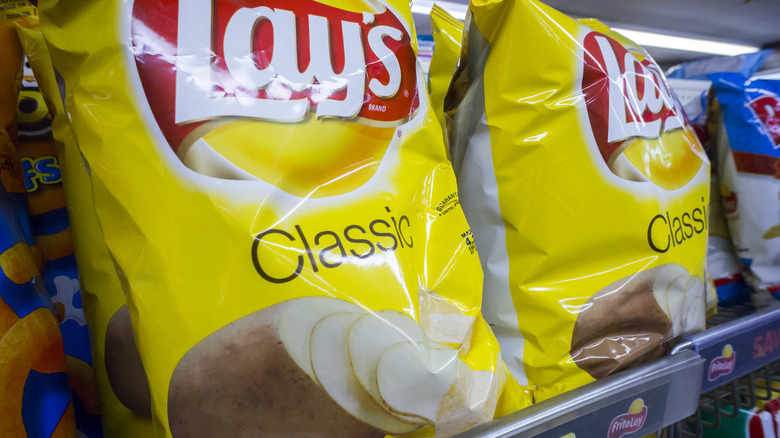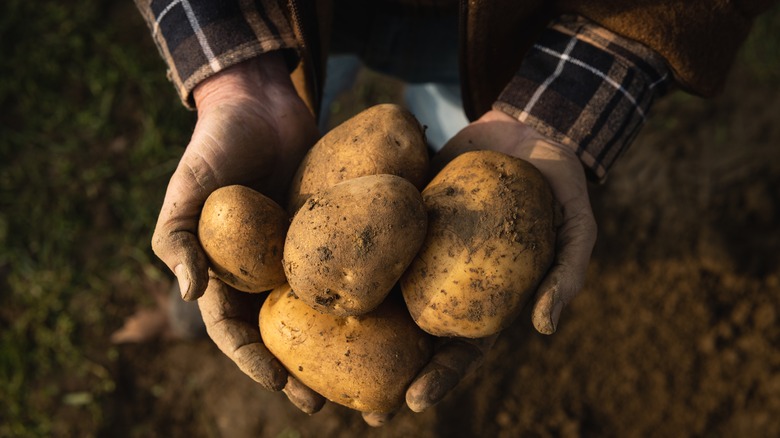Lay's Secret To Better Potato Chips Is All In Its Seeds
Everyone knows Lay's. The iconic brand fills store shelves with its logo — the bright yellow sun behind a red banner — and near-endless flavors of potato chips. However, no matter if you reach for a bag of the Classic, or you can't stop craving the tang of Salt & Vinegar, or you always go Sour Cream & Onion all the way, these potato chips all start in the same place — a potato field.
In fact, it's the potatoes that make Lay's potato chips so special, not necessarily the cooking method or the flavors. The brand purchases about 4 billion pounds of the starchy root vegetable every year and sources those potatoes from all over the country. However, no matter if the potatoes were grown in Maine, Florida, or Idaho, the potatoes are all the same, as Frito Lay scientists have developed a proprietary type of potato that is always used for Lay's potato chips. You won't find this potato variety in your average grocery store, and it comes with some key potato chip-processing benefits, plus some controversy.
What makes the Lay's potato special
The Lay's proprietary potato is known as the FC5 and it's only grown for use by Lay's and only grown to make only potato chips. The potato contains less water (about 5% less) than other potatoes and is grainier than other potato varieties, such as Russet potatoes or Yukon Gold potatoes. Potatoes with a high moisture content tend to stick together when cooked, so while they're ideal for roasting, boiling, or adding to your favorite potato salad recipe, they're not ideal for frying. Since Lay's needs to, obviously, fry its chips, a potato variety with less water content is more desirable for easier processing.
And don't make the mistake of thinking that this potato, while important to Lay's, is still just any old potato. It was the cause of a legal battle that began in 2019 and that continues on today. In 2019, Lay's attempted to sue Indian farmers for growing the potato outside of the agreement Lay's has with Indian farmers to produce the potatoes on Lay's behalf. While Lay's quickly offered to settle the lawsuit outside of court, in 2021, Indian authorities announced that Lay's claim to the potato variety was invalid anyway, as Indian law does not permit seed patents. In summer of 2023, Lay's appealed this decision, and that appeal was rejected.

